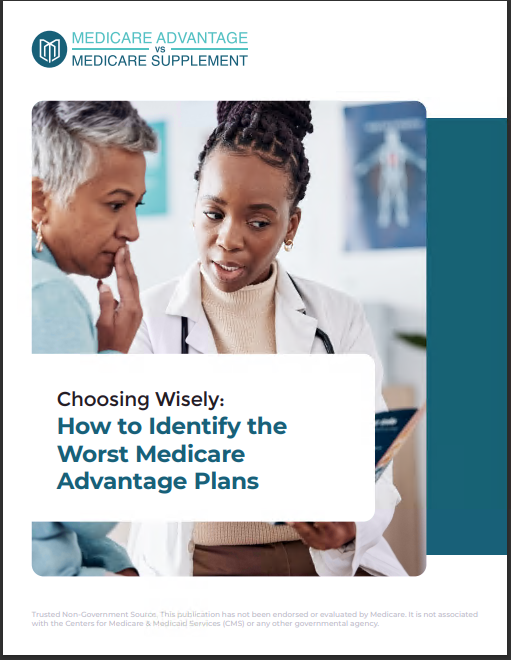Key Takeaways
-
In 2025, the choice between Medicare Advantage and Medicare Supplement plans still depends heavily on your personal health needs, budget, and access to providers—but clearer distinctions have emerged in how each serves different lifestyles.
-
Understanding how out-of-pocket costs, provider flexibility, and Medicare coordination work can help you make a confident choice between these two paths.
Understanding the Basics of Your Two Main Options
If you’re enrolled in Medicare or turning 65 this year, you’re probably weighing whether to go with Medicare Advantage (Part C) or stick with Original Medicare and add a Medicare Supplement (also called Medigap). Each path takes your coverage in a different direction, and understanding what sets them apart is the first step in making an informed choice.
Medicare Advantage (MA): These are all-in-one plans offered by private companies that contract with Medicare. They include Parts A and B and often Part D drug coverage.
Medicare Supplement Plans: These work alongside Original Medicare (Parts A and B) to help cover some or all of the out-of-pocket costs like deductibles, copayments, and coinsurance.
Both options are regulated by the federal government, but how they function in real life varies significantly.
1. Comparing Out-of-Pocket Costs
Cost is usually one of the biggest concerns when choosing a Medicare path.
With Medicare Advantage in 2025:
-
You typically pay copays for most services.
-
Plans have a yearly out-of-pocket maximum. For in-network services in 2025, this maximum can be as high as $9,350.
-
Some plans offer extra benefits at no additional premium, but others might charge an additional monthly fee on top of your Part B premium.
With Medicare Supplement Plans in 2025:
-
You usually pay a higher monthly premium upfront.
-
However, your out-of-pocket medical expenses throughout the year can be much lower, depending on the plan you choose.
-
These plans don’t include drug coverage, so you may need to purchase a separate Part D plan.
If you prefer budgeting ahead and avoiding surprise bills, Supplement plans might appeal to you more. If you’re comfortable with cost-sharing and prefer lower monthly premiums, Advantage plans might be worth exploring.
2. Freedom to Choose Providers
Access to healthcare providers is another critical difference.
With Medicare Advantage:
-
You often need to stay within a specific network of doctors and hospitals, especially if enrolled in an HMO.
-
Referrals may be needed to see specialists.
-
Emergency care is covered nationwide, but routine services might not be.
With Medicare Supplements:
-
You can visit any doctor or hospital in the U.S. that accepts Medicare.
-
There are no networks and no referrals required.
If you value flexibility and frequently travel across state lines, Supplements offer more freedom. Advantage plans may feel restrictive if you move or travel often.
3. Drug Coverage Differences
Part D drug coverage is another important factor in your decision.
-
Most include built-in prescription drug coverage.
-
Formularies (drug lists) vary by plan and may change annually.
Medicare Supplement Plans:
-
These do not include drug coverage.
-
You must enroll in a separate Part D plan, which adds an extra monthly cost and deductible.
In 2025, Part D plans now include an annual $2,000 cap on out-of-pocket drug costs, a change that simplifies comparisons and could influence your decision.
4. Extra Benefits in 2025: How Much Do They Matter?
Medicare Advantage plans often come with added perks. These may include vision, hearing, dental, fitness programs, or even transportation benefits. In 2025, however, not all extras are as widely available as they were in 2024:
-
Over-the-counter (OTC) allowances are now offered by about 73% of plans, down from 85% in 2024.
-
Transportation services are included in roughly 30% of plans, down from 36% last year.
Medicare Supplement plans generally do not offer these additional services. If these extras are essential to you, MA plans could be attractive, but they shouldn’t be the sole reason for your choice.
5. How Enrollment Works and When You Can Make Changes
Knowing when you can enroll or switch matters. Here’s how it works in 2025:
Initial Enrollment: Starts three months before your 65th birthday and ends three months after.
Medicare Advantage Open Enrollment Period: January 1 through March 31. You can switch Advantage plans or return to Original Medicare.
Annual Enrollment Period: October 15 through December 7. You can switch between MA and Original Medicare, join or drop Part D, or make other changes.
Medigap Enrollment: Best time is during your Medigap Open Enrollment Period, which begins when you’re both 65 and enrolled in Part B. During this time, you’re guaranteed coverage without medical underwriting.
If you miss this window, switching to a Medigap plan later may involve health screening.
6. Travel and Relocation Flexibility
Life changes. Retirement could mean spending winters in Florida and summers up north—or moving permanently.
Medicare Advantage:
-
You may be limited to providers in your plan’s service area.
-
If you move out of the area, you may have to switch plans entirely.
Medicare Supplements:
-
You can use your benefits anywhere in the U.S. as long as the provider accepts Medicare.
-
No plan change is needed if you move states.
For people with mobile lifestyles, Medicare Supplement plans tend to be more flexible.
7. Plan Stability and Annual Changes
Medicare Advantage plans can change every year—sometimes significantly. You might face changes in:
-
Premiums
-
Copays or coinsurance
-
Provider networks
-
Covered medications
These changes are shared in the Annual Notice of Change (ANOC), which arrives every September.
Medicare Supplement plans are more stable. Once enrolled, your benefits don’t change yearly, though premiums may increase over time.
If predictability is important to you, Supplements offer more consistency year after year.
8. Coordination With Medicare and Claims Processing
Medicare Advantage:
-
Acts as a standalone replacement for Original Medicare.
-
You deal directly with your plan for all claims and coverage issues.
Medicare Supplements:
-
Work alongside Original Medicare.
-
Medicare pays first, then your Supplement plan pays its share.
-
This usually results in fewer claim denials and less red tape.
People who prefer a clear, straightforward process often feel more confident sticking with Original Medicare plus a Supplement.
9. Long-Term Financial Strategy
Looking beyond just this year, consider what your health might look like five or ten years from now.
Medicare Advantage plans might start cheaper but could become more expensive if your health needs grow. You could face high annual out-of-pocket costs if you require frequent care.
With Medicare Supplement plans, you often pay more upfront in premiums, but you’re better protected from large expenses down the line.
Keep in mind that switching from Advantage to Supplement later isn’t always guaranteed, especially if you have pre-existing conditions and missed your Medigap enrollment window.
10. Making the Best Choice for Your Needs in 2025
There’s no universal winner here—only the best fit for your lifestyle, health needs, and budget. Here’s how to narrow it down:
Choose Medicare Advantage if:
-
You prefer lower monthly premiums
-
You’re okay with provider networks and referrals
-
You want built-in drug coverage and some extra perks
Choose Medicare Supplement if:
-
You travel often or live in more than one state
-
You want nationwide provider access
-
You prefer stable benefits and fewer out-of-pocket surprises
Before making your final decision, review the full Summary of Benefits and plan details. And if you’re still unsure, speak with someone who can walk you through both options clearly.
Get Clarity Before You Enroll
As 2025 unfolds, the gap between Medicare Advantage and Supplements is clearer than it’s ever been—but the best choice still depends on your personal situation. If you want freedom of choice, stability, and fewer billing surprises, Supplements might be your path. If you want bundled benefits and can manage care within a network, Medicare Advantage could work for you.
For peace of mind and personalized recommendations, connect with a licensed agent listed on this website who can help you understand what works best for your unique needs.










